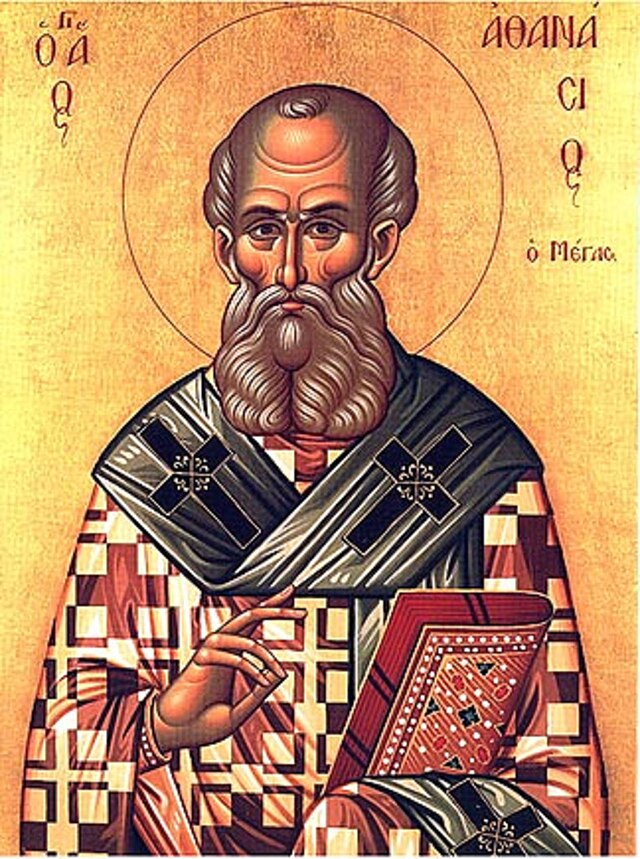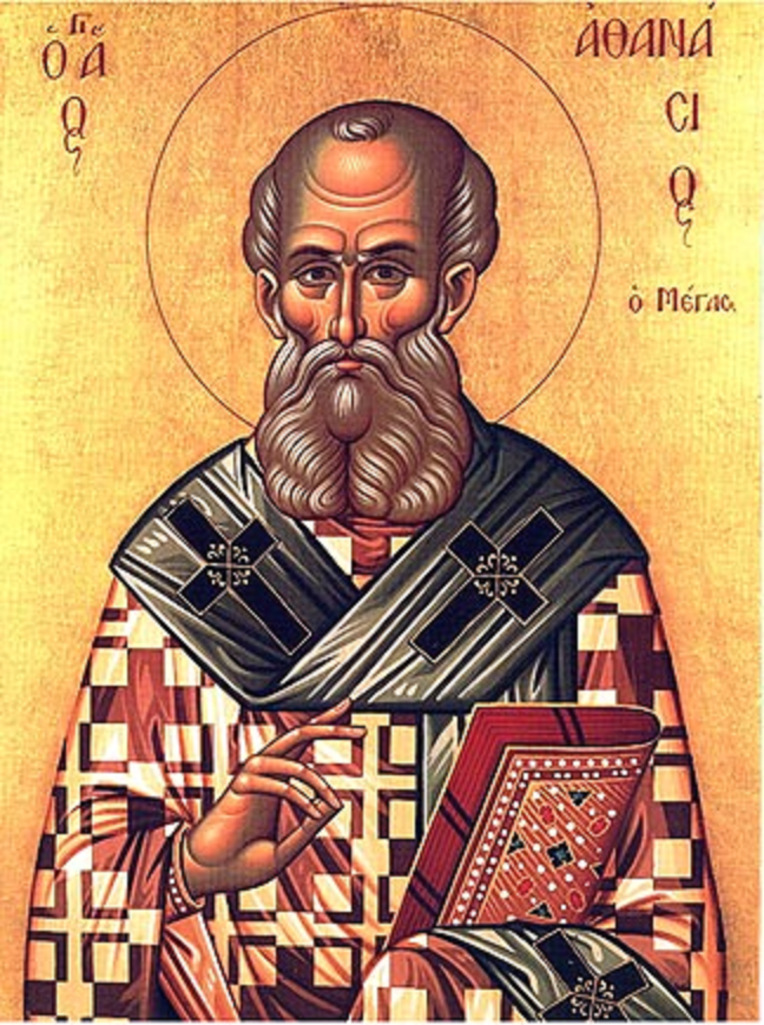
The Life of St. Athanasius of Alexandria
This is the story of a man who stood against the world, Athanasius Contra Mundum. For nearly fifty years, he was the main opponent of a popular movement that denied Jesus was fully God. In his fight to defend what would become the core Christian faith, he was exiled five times by four different Roman emperors, earning titles like "Father of Orthodoxy" and the esteemed "Doctor of the Church."
20th
Bishop of Alexandria
5 Times
Exiled for His Faith
17 Years
Total Time in Exile
Forging a Champion
Athanasius was shaped by his home city, Alexandria. It was a place that mixed brilliant Greek thinking with the passionate faith of Egyptian Christians, creating a leader who could defend his beliefs with both sharp logic and deep conviction.
The City of Thinkers and Martyrs
In the 4th century, Alexandria was a world-class centre of learning. But it was also a city where Christians had recently been executed for their faith. Athanasius grew up knowing that true belief wasn't just an idea, it was something worth dying for. This shaped his unbending character.
The Young Theologian
Born around 296 AD, Athanasius received a great education, but he was most inspired by the Bible. His deep faith caught the eye of the city's bishop, Alexander, who became his mentor. Though small in stature, he had a powerful personality and a brilliant mind that made him a tough opponent in any debate.
A Lifelong Blueprint: On the Incarnation
As a young man, Athanasius wrote a book that laid out the core belief he would defend his entire life. It centred on a "divine dilemma":
The Problem
God made humans to live forever. But when people sinned, they fell under the power of death. God's justice required a penalty, but his goodness wouldn't let his creation be destroyed. How could God be both just and good?
The Solution
Only the Creator could fix what was broken. The Word of God had to become human to pay the price for death and restore humanity. This led to his most important conviction: Only God is powerful enough to save us.
"For He was made man that we might be made God."
The Arian Storm
A local disagreement in Alexandria about who Jesus was quickly grew into a massive crisis that threatened to split the Christian Church in two.
The Teaching of Arius

"There was a time when the Son was not."
A popular and ascetic priest named Arius began teaching that Jesus was not eternal God. He argued that since the Son was "begotten" by the Father, he must have had a beginning. This meant the Son was a creature, made out of nothing like everything else. To Arius, Jesus was God's first and greatest creation, a kind of demigod, but he was not equal to the Father. This idea appealed to those who wanted a very strict, philosophical monotheism. Arius was also a clever propagandist, writing catchy songs to spread his ideas among everyday people.
The Nicene Response

Led by Bishop Alexander & Athanasius
Bishop Alexander and his deacon Athanasius saw this teaching as a disaster for the faith. If Jesus was a creature, he couldn't save other creatures. When Arius was condemned by a local council, he found powerful friends in the emperor's court, and the fight exploded across the empire. Emperor Constantine, worried that this religious division would damage the unity of his empire, decided to step in and call a great council to settle the matter.
The Council of Nicaea (325 AD)
To solve the problem, Constantine called for an unprecedented gathering, the first "ecumenical council." An ecumenical council is a meeting of bishops from the entire known world (the oikoumene in Greek) to settle major issues of faith and practice. Its decisions are considered to have the highest authority. At this great meeting in Nicaea, Athanasius, though only a deacon, became a key defender of the belief that Jesus is fully God.
The Decisive Word: Homoousios
The council needed a word that couldn't be misinterpreted. They chose the Greek word homoousios, meaning "of one substance." It declared that the Son is God in the exact same way as the Father. This became the heart of the Nicene Creed. The council condemned Arius, but this victory was only the beginning of Athanasius's lifelong battle.
A Life in Exile
After being elected bishop in 328, Athanasius became the main target of his enemies. Since they couldn't beat his arguments, they used lies and politics to attack him. This interactive timeline explores the 17 years he spent banished from his home. Click on each exile to learn more.
Select an exile period on the timeline above to view details.
The Power of the Pen
Even when he was forced to leave his home, Athanasius's influence grew through his writings. His books and letters were his main weapons, shaping Christian belief, inspiring a new kind of spiritual life, and even helping to define the Bible itself. Explore his most important works below.
A Lasting Legacy
Athanasius died peacefully in 373 AD. He had outlasted his enemies and seen his beliefs begin to win out. His legacy is a core part of Christianity today.
Athanasius spent nearly 40% of his 45 years as bishop in exile.
Father of Orthodoxy
By defending the Nicene Creed, he cemented the doctrine of Jesus's full divinity. His argument that only God can save people remains a central Christian belief.
Champion of Monasticism
His famous biography, The Life of Antony, made the idea of being a monk, a spiritual warrior in the desert, popular throughout the Roman Empire.
Father of the Canon
In a letter from 367 AD, he listed the 27 books of the New Testament. This is the same list used by Christians today, and it was a key step in finalizing the Bible.
Defender of the Church
Athanasius stood up to emperors who tried to control the Church's beliefs. He proved that a bishop with the people's support could resist even the power of the state.
Lessons for Today
The life of St. Athanasius is not just ancient history; it offers powerful lessons for believers in every age. In a world of confusion, his example provides a clear guide for navigating the challenges to our faith.
Stand Firm in the Truth
Athanasius often felt like he was the only one defending the truth, but he never backed down. He teaches us to have courage in our convictions, especially when it feels like the whole world is against us. True faith sometimes requires us to stand alone with God.
Doctrine Matters
For Athanasius, the debate about Jesus wasn't a small detail, it was everything. He knew that what we believe about God directly impacts our salvation. He reminds us that core Christian doctrines are not just opinions; they are life-giving truths worth defending.
Trust the Faith Handed Down
Arianism was a "new" idea that contradicted what the Church had always taught. Athanasius's strength came from staying rooted in the traditional faith passed down from the apostles. He shows us the wisdom of trusting the Church's timeless teaching over novel ideas that fade with time.
